#United Sovereign Americans
Explore tagged Tumblr posts
Text
Paul Blumenthal at HuffPost:
With a month and change to go before the election, Republican presidential candidate Donald Trump and his allies are already laying the groundwork to contest the results of the 2024 election if he loses by engaging in a false campaign around the threat of noncitizen voting.
Trump and Republican leaders, from House Speaker Mike Johnson (R-La.) to GOP secretaries of state who oversee elections, have pushed the narrative that the 2024 elections are being intentionally corrupted by mass noncitizen voting. Noncitizen voting is “a clear and present danger,” Johnson claimed at a May press conference announcing federal legislation mandating proof of citizenship to register to vote. In his debate with Vice President Kamala Harris last month, Trump took things further, falsely claiming that Democrats allow immigrants into the country to get them to vote illegally. “They can’t even speak English. They don’t even know what country they’re in, practically. And these people are trying to get them to vote, and that’s why they’re allowing them into our country,” Trump said.
Meanwhile, GOP secretaries of state, including Ohio’s Frank LaRose and Alabama’s Wes Allen, and Texas’ GOP Gov. Greg Abbott, made headlines announcing purges of supposed noncitizens from their voter rolls. Texas has also mobilized law enforcement to crack down on voter registration activities by Latino activist groups, raiding their homes and intimidating them from engaging in politics. This strategy has been led by Trump and his allies in Congress and around his campaign. It has been joined by high-profile conservative voices like billionaire Elon Musk and former Fox News personality Tucker Carlson. And it has been organized by election deniers through the conservative election denial group Election Integrity Network, run by Cleta Mitchell, a conservative lawyer who backed Trump’s effort in 2020 to steal the election.
Now, with just weeks to go in the election, the noncitizen voting allegations have entered the courts. Beginning in August, the Republican Party, a Trump-allied legal nonprofit run by his adviser, Stephen Miller, and a grassroots election denial group filed a string of lawsuits seeking massive purges of voters they claim to be either noncitizens or otherwise illegitimately registered to vote while suggesting that elections cannot be certified if they don’t get their way. These lawsuits are not only riddled with unsubstantiated claims of noncitizen voting and faulty data analysis claiming mass voter fraud — they all seek a remedy that is illegal. Federal law prohibits election officials from removing registered voters from the rolls within a 90-day blackout period prior to an election, a period that began on Aug. 7. Courts cannot order voter purges after that date. These lawsuits could have been filed earlier in 2024, when a court could order officials to review voters’ citizenship status or other potential registration errors and remove them from the rolls. But the groups filing these suits all waited until this remedy was impossible. Instead, these lawsuits appear to be part of a concerted public relations campaign to cast doubt on the outcome of the election if Trump loses again, as well as provide a post-election justification to local officials to refuse to certify the vote.
[...]
The Lie
In 2020, Trump and the Republican Party pointed to election law changes enacted due to the COVID-19 pandemic that made it easier for voters to cast their ballots without appearing in person to claim President Joe Biden’s win was fraudulent. Trump’s “big lie” caused a chaotic rush following the election as he sought to toss out the valid votes of millions of Americans, culminating in the attempted insurrection on Jan. 6, 2021, Trump’s second impeachment and his indictment on multiple felony counts. Trump continues to embrace the lies about 2020, and Republicans have largely followed suit. More of them trust Trump’s word over government certification of election results, according to an Associated Press poll conducted this year. With no pandemic voting changes to rely on, Republicans are now hanging their hat on the issue of noncitizen voting to provide the narrative structure for false post-election fraud claims. Of course, like the lies around voting in 2020, Republicans’ claims of mass noncitizen voting are entirely made up. Noncitizen voting is already illegal in all federal and state elections under multiple laws. It is also vanishingly rare. A database maintained by the conservative Heritage Foundation, which has been promoting falsehoods about noncitizen voting, lists just 68 legal actions taken against noncitizens for voting in federal elections going back to the 1980s. Meanwhile, a study by the progressive Brennan Center found that election officials across 42 jurisdictions in 12 states found just 30 cases of suspected noncitizen voting following the 2016 election. For perspective, that accounts for 0.0001% of the votes cast in those jurisdictions. Even Trump’s own election fraud task force failed to find any evidence of systematic or widespread fraud, including involving noncitizens in elections.
[...] County clerks provided the board with lists of registered voters who claimed to be noncitizens to be excused from jury duty in August, according to Gannon. The board then compared those lists with state voter registration records and found a total of nine voters who matched. Those nine people will be checked against state and federal databases to see whether they are citizens. If they are indeed noncitizens, the board will send them letters inviting them to cancel their registrations. This is the process the board must follow because of the 90-day blackout period prohibiting voter purges so close to an election. [...] United Sovereign Americans is a grassroots group promoting the idea that every election across the country is effectively illegitimate due to its claims of corrupted voter rolls. It was founded in 2023 by election denial activist Marly Hornik, whose canvassing effort aimed at proving election fraud in the 2022 New York state elections led the state’s attorney general to issue a cease-and-desist letter. The group now claims that upward of 10 million votes cast in the 2022 elections across 20 states were illegitimate and should not have been counted. Its lawsuits in Colorado, Florida, Michigan, North Carolina, Ohio, Pennsylvania and Texas all make similar claims that the states’ voter rolls contain error rates that exceed the level allowed by federal law and that they should therefore not be certified. The group explicitly states that the number of lawsuits it has filed is in an effort to get their claim before the Supreme Court before the 2024 election.
[...]
A New Road To The Same Goal
When Trump lied about election fraud in 2020, it was only the first part of his push to overturn the election. He also sought to exploit the process for counting electoral votes, first by producing alternate slates of electors from key swing states, then by pressuring former Vice President Mike Pence to use those alternate slates to deny Biden the vote in states he won. Finally, when none of that worked, Trump incited a violent mob on Congress to derail the counting of those votes. This half-baked plan did not work — and it would be impossible to do again in 2024. Harris, not Pence or another GOP official, will preside over the counting of the electoral votes. Meanwhile, Congress has since reformed the Electoral Count Act to make it impossible for states to submit alternate electors. It’s also unlikely that any GOP electors would want to follow Trump’s plans after 35 of his fraudulent electors were indicted for their actions in 2020.
Instead, as the United Sovereign Americans lawsuits make plain, any effort to contest the outcome of the election this year would run through efforts by local GOP election officials refusing to certify the election. “[Certification] is the lever that election conspiracy theorists see as the best opportunity if they don’t like the choice the voters have made,” said Ben Berwick, head of litigation for Protect Democracy, a nonprofit that counters election denial. Election deniers first took aim at the certification process in 2020, when two Republican members of the four-member canvassing board in Wayne County, Michigan (which includes Detroit), initially decided on their own to refuse to certify the county’s election amid a flurry of false claims of voter fraud fueled by Trump.
[...]
First, it’s illegal for local officials to refuse to certify election results. In each previous case, courts have stepped in to force wayward officials to certify in no uncertain terms. And if those local officials still refuse, they can be indicted and prosecuted, as happened to two officials in Cochise County, Arizona. “We’ve got a little bit of a hammer here in Arizona in that we’re kind of operating under the FAFO rule — mess around and find out,” Fontes said, using an acronym for the phrase “fuck around and find out.” Second, county-level certification refusals do not impact state executive decisions to certify the statewide results, meaning states could go ahead and confirm their electoral votes no matter what the county officials choose to do. Third, the Electoral Count Reform Act details instructions for courts to hear cases involving certification that occur after the Dec. 11 deadline on an extremely expedited basis, giving officials yet another path to confirm the results despite opposition stalling. Finally, and perhaps most importantly, Trump-backed election deniers who ran for key offices overseeing elections in swing states in 2022 all lost.
Democratic and Republican officials across the swing states of Arizona, Georgia, Michigan, Nevada, North Carolina, Pennsylvania and Wisconsin adamantly assert that they will fight certification refusals in the courts, seize the power to certify county election results if necessary and honor the actual winner of their states. Of course, Trump’s efforts to steal the 2020 election were laughable at the time — until they weren’t. Any attempt to illegally overturn the 2024 election could yet again cause chaos and violence where unlikely things can transpire. Still, election experts expect the dam to hold. “While their strategy will fail, there’s no line they won’t cross,” Becker said. “The period after the election could be very volatile, but I’m 100% confident the winner will have their hand on the Bible on Jan. 20.”
HuffPost’s Paul Blumenthal has an excellent report on how Donald Trump is pushing the bogus “noncitizen voting” issue to set up challenges to the 2024 election results if he loses in a redux of 2020.
See Also:
The Guardian: Republicans’ non-citizen voting myth sets stage to claim stolen election
Read the full story at HuffPost.
#2024 Presidential Election#The Big Lie#Donald Trump#Tucker Carlson#Cleta Mitchell#Election Denialism#Election Integrity Network#Elon Musk#Noncitizen Voting#Wes Allen#Frank LaRose#Greg Abbott#Mike Johnson#SAVE Act#Stephen Miller#2020 Presidential Election#Capitol Insurrection#America First Legal#United Sovereign Americans#Marly Hornik
8 notes
·
View notes
Text
The #1 most confusing thing about sovereign citizen mentality
"I'm not a US citizen, US laws don't apply to me!"

You still have to follow the rules of places you're visiting even if you're not a citizen. Hell, you need to be even MORE careful because you're not as familiar with the rules and you may not have the same rights as citizens.
In fact, non-citizens of the US do NOT have the same protections as USAmericans while on American soil. It's in the US constitution.
Meanwhile, Canadian SovCits try to use the American constitution in Canada, as if US laws and rights apply to Canada...
#make it make sense#lol#sovereign citizen#i'm just saying#why are people like this#canada#united states#the united states#americans#canadian#cndpoli
2 notes
·
View notes
Text
wait. op. did you look up the list of eurovision contestants and then put it away and forget who exactly was on it, or was the netherlands forgotten here because we were disqualified from eurovision this year?
also is the bit marked Lux supposed to be Luxemburg?
wait. nevermind on that first point. i just found us, we're south of belgium. i initially thought you put bretagne or calais as its own seperate country.
well. it's in the right neighbourhood!

I remember a while ago I did a thing where I tried to draw in the 50 US States from memory, and now I'm going to try it with Europe. As an American, I'm sure I'm gonna do great
#also shame on the mapmaker for filling in the former southern sea as if it's land#it may be lake now but it's still very much Water and really adds to the distinctive shape of the netherlands on a map like this#bis speaks#also i can't even gauge how you did with eastern and central europe so. i can't really judge actually#apart from knowing that yugoslavia is very very gone#and switzerland borders france#and a couple other things#but like. i did a europe country quiz the other day where i had to click the country after being given the name#and i got like 56 percetn#more than the 44 i got on the american states#which is good because i've never been to the united states so it'd be embarassing if i were better at subdivisions of another country#than the sovereign states of the continent i live#but still. pretty bad
613 notes
·
View notes
Text
In July, the Iraqi Central Bank halted all foreign transactions in Chinese Yuan, succumbing to intense pressure from the US Federal Reserve to do so. The shutdown followed a brief period during which Baghdad had allowed merchants to trade in Yuan, an initiative intended to mitigate excessive US restrictions on Iraq’s access to US dollars. While this Yuan-based trade excluded Iraq’s oil exports, which remained in US dollars, Washington viewed it as a threat to its financial dominance over the Persian Gulf state. [...]
Since the signing of Executive Order 13303 (EO13303) by President George W Bush on 22 May 2003, all revenues from Iraq’s oil sales have been funneled directly into an account at the Federal Reserve Bank of New York. EO13303, titled “Protection of the Development Fund for Iraq and Other Property in Which Iraq Has an Interest,” has been renewed annually by every US president, including Joe Biden in 2024. This executive order essentially places control over Iraq’s oil revenues under the discretion of the US President, leaving Baghdad with limited control over its resources and earnings. [...]
Whenever Washington feels that Iraq is not compliant with US regional goals, these fund transfers can be delayed or reduced. In January 2020, for instance, after the Iraqi Parliament voted to expel US troops following the assassination of Iranian Quds Force General Qasem Soleimani and Iraqi Popular Mobilization Units (PMU) Deputy Commander Abu Mahdi al-Muhandis, the Trump administration threatened to freeze Iraq’s access to its oil revenues. [...] The country’s inability to control its own funds has prevented long-term reconstruction and development, forcing it to rely on international loans. [...]
Iraq ceased to be under occupation, at least formally, when it signed the “Strategic Cooperation Framework” agreement with the US in 2008, which says that American forces are present in Iraq only at the request of the Iraqi government.
Attempts by the UN to restore Iraq’s control over its finances have largely failed. In 2010, UNSC Resolution 1956 demanded the closure of the DFI by no later than 30 June 2011 and the transfer of all proceeds to the Iraqi government. Despite these clear legal directives, the DFI account remains under US control at the Federal Reserve Bank of New York in defiance of the UN Security Council resolution. Worse yet, enduring US dominance over Iraq’s financial resources has deeply exacerbated the corruption and dysfunction plaguing the country. [...]
Today, both the US Administration of Joe Biden and the Iraqi government led by Mohammad Shia al-Sudani – which has not taken steps to free Iraq’s sovereign funds – can be considered in violation of United Nations Resolution 1956 issued in 2010.
293 notes
·
View notes
Text



If you can understand that the single sovereign state of the US is made up of 50 constituent states, and that while all Californians are American not all Americans are Californian, you can understand that the single sovereign state of the UK is made up of 4 constituent countries, and that while all English people are British not all British people are English.

[ID: three versions of the “screaming crying throwing up” meme image, with the captions “me when people think the UK and England are the same thing”, “me when people think all British people are English”, and “me when people think “England” refers to the entire British Isles”. Below that, a map of the British Isles with the different countries (Scotland, England, Wales, and Northern Ireland, which all make up the UK, plus the Republic of Ireland) highlighted. Text on the map notes that “Great Britain is the main island = England + Scotland + Wales” and that “United Kingdom of Great Britain and Northern Ireland is the sovereign nation”. end ID]
#britain#great britain#united kingdom#uk#ukpol#uk politics#british#british politics#maps#geography#political geography#england#scotland#wales#northern ireland#ireland#screaming crying throwing up#my posts
298 notes
·
View notes
Text
Indigenous People's Day

DR. HENRIETTA MANN Cheyenne
On this Indigenous Peoples' Day, we are featuring Matika Wilbur’s recent publication Project 562: Changing the Way We See Native America, published by Ten Speed Press in 2023. Wilbur (b. 1984) is a visual storyteller and member of the Swinomish and Tulalip peoples of coastal Washington. She holds a degree from the Brooks Institute of Photography alongside a teaching certificate that has shaped her style of educating through narrative portraits.
Project 562: Changing the Way We See Native America, a book born from a documentary project of the same name, resolves to share contemporary Native issues and culture. In 2012 Wilbur set out from Seattle to visit and photograph all 562 plus Native American sovereign territories in the United States.
Wilbur’s engagement with the communities she visited resulted in the creation of hundreds of dynamic portraits and documentation of conversations about “tribal sovereignty, self-determination, wellness, recovery from historical trauma, decolonization of the mind, and revitalization of culture.” She refers to her portraiture approach as “an indigenous photography method” that includes several hours and sometimes days of interaction with the participants, an exchange of energy and gifts, and asking sitters to choose their portrait location. The outcome is a stunning collection of Native narratives and portraits.

GREG BISKAKONE JOHNSON Lac Du Flambeau Band of Lake Superior Chippewa Indians

HOLLY MITITQUQ NORDLUM Iñupiaq

J. MIKO THOMAS Chickasaw Nation

MOIRA REDCORN Osage, Caddo
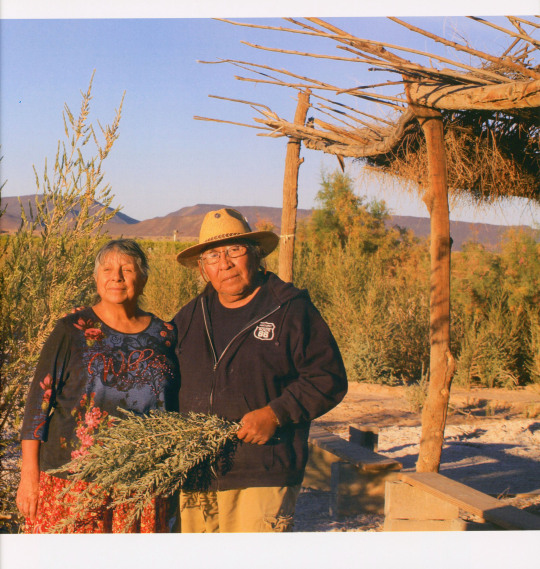
HELENA and PRESTON ARROW-WEED Taos Pueblo/Kwaatsaan, Kamia

STEPHEN YELLOWTAIL Apsáalooke (Crow Nation)

LEI'OHU and LA'AKEA CHUN Kānaka Maoli

ORLANDO BEGAY Diné

KALE NISSEN Colville Tribes
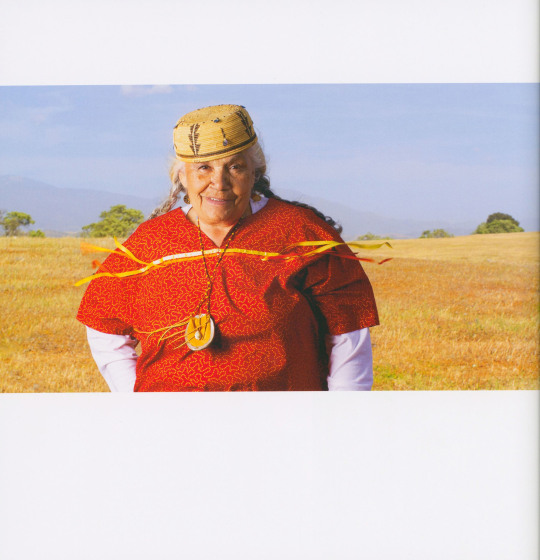
GRACE ROMERO PACHECO Santa Ynez Band of Chumash Indians

ISABELLA and ALYSSA KLAIN Diné

NANCY WILBUR Swinomish
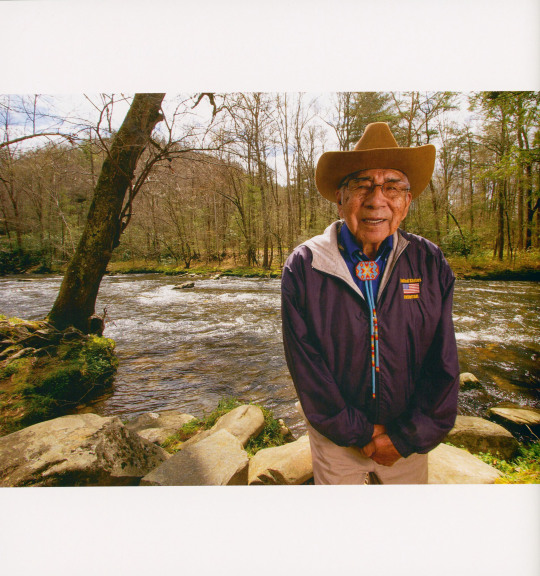
DR. JEREMIAH "JERRY" WOLFE Eastern Band of Cherokee Indians

RUTH DEMMERT Tlingit

MARVA SII~XUUTESNA JONES Tolowa Dee-Ni' Nation, Yurok, Karuk, Wintu
Matika Wilbur will be speaking on UW-Milwaukee's campus Thursday, November 16 from 6-7p.m. in conjunction with her exhibition Seeds of Culture: The Portraits and Voices of Native American Women on view at the Union Art Gallery November 16 through December 15, 2023.
-Jenna, Special Collections Graduate Intern
We acknowledge that in Milwaukee we live and work on traditional Potawatomi, Ho-Chunk, and Menominee homelands along the southwest shores of Michigami, part of North America’s largest system of freshwater lakes, where the Milwaukee, Menominee, and Kinnickinnic rivers meet and the people of Wisconsin’s sovereign Anishinaabe, Ho-Chunk, Menominee, Oneida, and Mohican nations remain present.
#indigenous peoples' day#matika wilbur#project 562#Ten Speed Press#Native Americans#holidays#UWM Native American Literature Collecton
848 notes
·
View notes
Text
Something worth noting is that the constitutions of many Latin American countries were based in the US constitution, which was at the time seen as an example of a liberal republic. So yes, indeed, Argentina once had an electoral college for example.
And indeed that electoral college and restrictive voting laws (the República Conservadora of 1853-1916~) was used to suppress popular will (something like 1% of the population could vote). After the reforms by the UCR, universal male suffrage was achieved, the electoral college always voted proportionally to the popular vote (unlike the US where it's a winner takes all system), though afterwards there was decades of coups so there weren't many elections. Woman suffrage came with Perón and Evita, as well as the 1949 constitution that enshrined worker's and social rights (later repealed by the military dictatorship, though worker's rights are still guaranteed explicitly by the current constitution)
It was with the 1994 constitution when we finally stopped that stupid system and went directly with the popular vote. In any case, as I said, the electoral college voted proportionally to the popular vote so it was more redudant than anything. (I understand, though my knowledge there is limited, that Brazil and other countries had a similar history)
This all happened because like most constitutions, the Argentine constitution has been reformed multiple times. It started mostly as a copy of the US constitution which was a model at the time, but situations changed. Worker's rights, women's right, indigenous rights, environmental rights, changes to the procedure of state, the defense against our history of coups. Many things changed (and indeed the constitution and I argue the whole political system is overdue for a change) and they did by long popular struggle.
The United States remains the only country in the world with an electoral college. Many archaic and unequal things like the all powerful supreme court or the strange voting system in the United States simply aren't found in other such democracies because they changed. It's strange to pretend the United States is a paramount of democracy because their own model of democracy is actually very obsolete, and in fact doesn't even approach the ongoing developments in popular sovereignity in countries like China (which I don't have time to write about but they're very interesting) or indeed, other "average" democracies in Latin America, Africa, Europe, and the rest of the world. And yet democracies in general are having a hard time in responding to the needs of the people (which is natural given the state of class conflict) and there are some that are particularily ossified and not a model for anyone, such as the US and the UK. If you attempt to study or measure "democracy" by their standards, you're doomed to failure.
In the coming decades new ways of concieving the state and the "res publica" will emerge. From an outsider's perspective, the liberal capitalist model of the United States is hopelessly outdated and those who cling to it (like our own Milei) are walking fossils. There is a future for democracy but it will be very different from what we know.
#cosas mias#la verdad no puedo creer que tuvimos un sistema tan boludo y que le tenemos que agradecer a Menem que no está más#pero bueno así es
106 notes
·
View notes
Text
There is an important line between cynicism and nihilism. Assuming that SCOTUS will authorize the end of birthright citizenship would cross that line. Trump’s reascendency to the White House is a pitch-black moment in this country’s history, but that is no license to indulge in preemptive defeat.
Why should we expect the Supreme Court to uphold birthright citizenship? There are three main reasons: one legal, one practical, and another related to the court’s own power. Start with the legal issue: There are few constitutional provisions with a clearer and more settled meaning than the citizenship clause of the 14th Amendment: “All persons born or naturalized in the United States, and subject to the jurisdiction thereof, are citizens of the United States and of the State wherein they reside.” This guarantee is rooted in common lawand traces back to the nation’s founding. Congress enshrined it in the Constitution after the Civil War to overturn the Supreme Court’s decision in Dred Scott, which had erroneously denied citizenship to Black Americans. During ratification, senators explicitly recognized that the citizenship clause’s broad language would encompass not just freed slaves but also the children of immigrants. They debated and ultimately approved the extension of birthright citizenship to these children, concluding that their parents’ lack of American citizenship should not abridge their own civil rights. The Supreme Court affirmed this understanding of the 14th Amendment in 1898’s Wong Kim Arkand has never retreated from it.
Trump attempts to get around this plain meaning by latching onto the words “subject to the jurisdiction thereof.” His order claims that the children of immigrants are not “subject to” the United States’ jurisdiction, presumably because their parents are citizens of another country. This argument is an indefensible misreading of both the text and the historical record. Once again, senators discussed this issue when drafting the 14th Amendment, and agreed that the “jurisdiction” language simply means “subject to our laws.” And the Supreme Court has clarified that all immigrants, both lawful and undocumented, are fully subject to U.S. jurisdiction.
Why, then, did Congress mention jurisdiction in the 14th Amendment? Because it intended to exclude the offspring of three groups who were not fully “subject” to U.S. law: foreign diplomats, invading soldiers, and Native tribes. Diplomats and soldiers were viewed as agents of a foreign sovereign, while tribes were, at the time, viewed as “quasi foreign nations.” But Congress was adamant that all other people, including immigrants’ offspring, be included in the promise of birthright citizenship.
To uphold Trump’s executive order, then, the Supreme Court would have to jettison 126 years of precedent, abolishing an ancient right at the heart of constitutional liberty. That will give the court serious pause. A large majority of justices almost certainly do not want to destabilize American law in this way, abruptly eradicating a right upon which millions have come to rely. Trump’s order also goes far beyond undocumented immigrants, denying citizenship to the children of “temporary” immigrants who are here lawfully. People with H-1B visas, Temporary Protected Status, DACA, and others who’ve long resided in the U.S. would evidently fall under this category, meaning their offspring would not receive citizenship. If implemented, this policy would be extremely unpopular: Most Americans do not want to end birthright citizenship for the children of undocumented people, let alone the children of legal immigrants. It would also upend the practical realities of citizenship, creating immense confusion that would invariably wind up in the judiciary’s lap.
not sure how much i agree that “the court” wants to not be seen as trump’s lapdog but i agree that this is one of those issues that roberts, barrett, gorsuch, and kavanaugh would be very likely to not side with him on.
54 notes
·
View notes
Text
This is a personal/opinion post grounded in my knowledge of Modern History. It does not attempt to be anything resembling a history of the SCOTUS or messiness in US Politics, and it does NOT argue/imply that the SCOTUS pre-2020 was a flawless haven of justice untouched by partisan issues and bigotry (lmao)
There's always a lot of talk about the rise of fall of the US Empire blah blah blah. But I'll tell you what moment is burnt into my brain is the moment I thought "that's it. The 'American Experiment' is over. Now it's just a long journey to the end." It was when Ruth Bader Ginsburg died, and with her, my faith in the legitimacy of the Supreme Court of the United States as the supreme arbiter of justice. And that was solidified for me when when the Trump v. United States ruling was released on July 1, 2024. Supreme Court Opinion | ACLU Remarks
Now, that institution is filled with rapists, religious extremists, and extraordinarily corrupt individuals. I have no faith in the institution to deliver anything that resembles a non-partisan application of Constitutional Law. Whatever happens next won't be a fight for the "soul*" of the country. It'll be a fight to preserve whatever freedoms the SCOTUS and the very specifically post-Obama US Fascist Parties determine the left is allowed to maintain.
As always, I hope I'm wrong. But we have an incoming POTUS going full Hitler** and talking seriously about annexing other sovereign nations, and highly placed people acting like this is normal and fine. It's not normal.
I'm not even panicking or upset. I did that when RBG died. Now I'm just trying to figure out how to avoid complying in advance.
*If, indeed, the soul of the country is worth preserving. But that's a different conversation.
**While comparisons to this individual are horrifically overused, by the late 30s Hitler was 100% serious about annexing the Sudetenland, Austria, and Poland, and highly placed individuals were like "sure bro long live the Reich this is normal and fine."
68 notes
·
View notes
Text

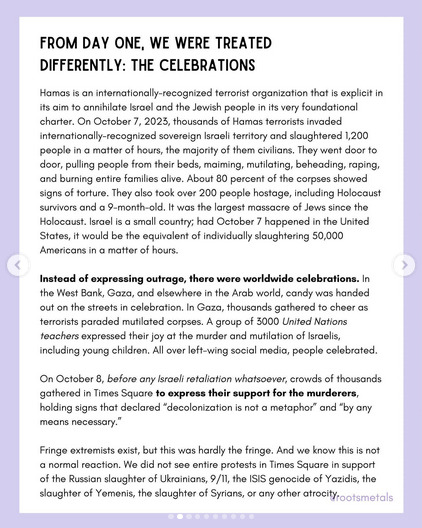
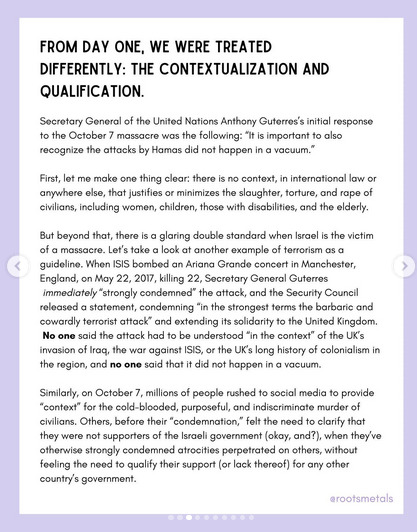
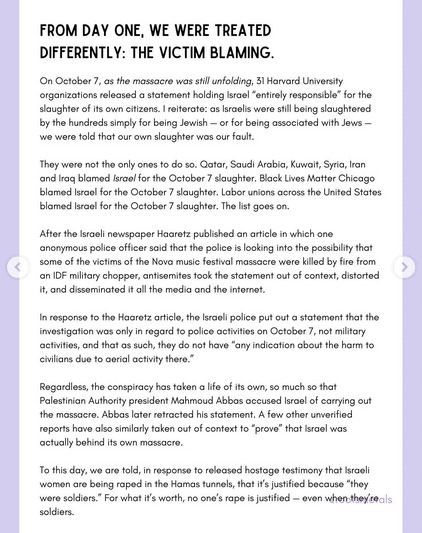
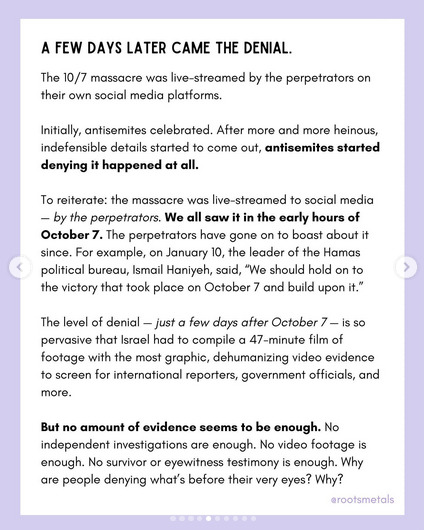
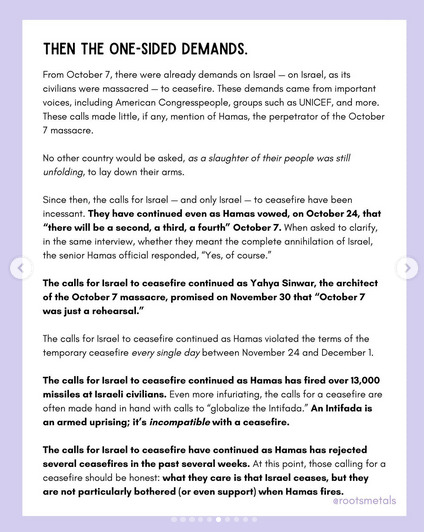
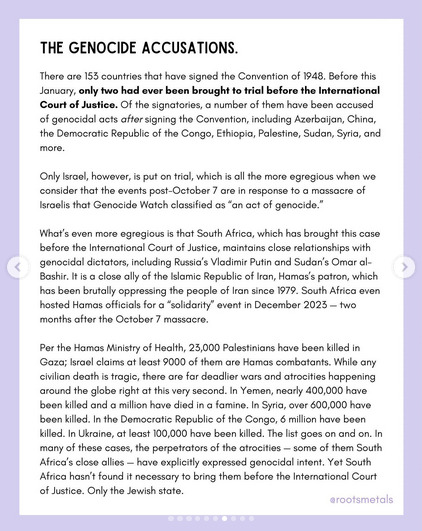
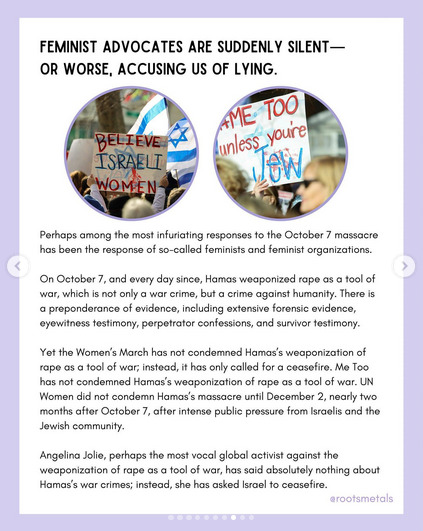
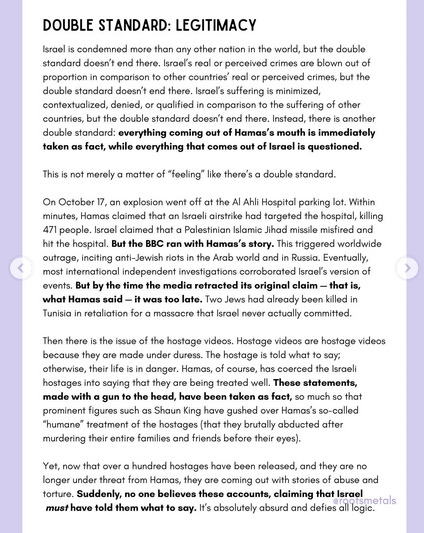

source
[transcript: [slide 1]
we are treated differently and we are so tired
[slide 2] From day one, we were treated differently: the celebrations
Hamas is an internationally-recognized terrorist organization that is explicit in its aim to annihilate Israel and the Jewish people in its very foundational charter. On October 7, 2023, thousands of Hamas terrorists invaded internationally-recognized sovereign Israeli territory and slaughtered 1,200 people in a matter of hours, the majority of them civilians. They went door to door, pulling people from their beds, maiming, mutilating, beheading, raping, and burning entire families alive. About 80 of the corpses showed signs of torture. They also took over 200 people hostage, including Holocaust survivors and a 9-month-old. It was the largest massacre of Jews since the Holocaust. Israel is a small country; had October 7 happened in the US, it would be the equivalent of individually slaughtering 50,000 Americans in a matter of hours.
Instead of expressing outrage, there were worldwide celebrations. In the West Bank, Gaza, and elsewhere in the Arab world, candy was handed out on the streets in celebration. In Gaza, thousands gathered to cheer as terrorists paraded mutilated corpses. A group of 3000 United Nations teachers expressed their joy at the murder and mutilation of Israelis, including young children. All over left-wing social media, people celebrated.
On October 8, before any Israeli retaliation whatsoever, crowds of thousands gathered in Times Square to express their support for the murderers, holding signs that declared "decolonization is not a metaphor" and "by any means necessary".
Fringe extremists exist, but this was hardly the fringe. And we know this is not a normal reaction. We did not see entire protests in Times Square in support of the Russian slaughter of Ukranians, 9/11, the ISIS genocide of Yazidis, the slaughter of Yemenis, the slaughter of Syrians, or any other atrocity.
[slide 3] From Day one, we were treated differently: the contextualization and qualification
Secretary General of the United Nations Anthony Guterres' initial response to the October 7 massacre was the following: "It is important to also recognize the attacks by Hamas did not happen in a vacuum."
First, let me make one thing clear: there is no context, in international law or anywhere else, that justifies or minimizes the slaughter, torture, and rape of civilians, including women, children, those with disabilities, and the elderly.
But beyond that, there is a glaring double standard when Israel is the victim of a massacre. Let's take a look at another example of terrorism as a guideline. When ISIS bombed an Ariana Grande concert in Manchester, England on May 22, 2017, killing 22, Secretary General Guterres immediately "strongly condemned" the attack, and the Security Council released a statement, condemning "in the strongest terms the barbaric and cowardly terrorist attack" and extending its solidarity to the United Kingdom. No one said the attack had to be understood "in the context" of the UKs invasion of Iraq, the war against ISIS, or the UKs long history of colonialism in the region, and no one said that it did not happen in a vacuum.
Similarly, on October 7, millions of people rushed to social media to provide "context" for the cold-blooded, purposeful, and indiscriminate murder of civilians. Others, before their "condemnation" felt the need to clarify that they were not supporters of the Israeli government (okay, and?), when they've otherwise strongly condemned atrocities perpetrated on others, without feeling the need to qualify support (or lack thereof) for any other country's government.
[slide 4] From day one, we were treated differently: the victim blaming
On October 7, as the massacre was still unfolding, 31 Harvard University organizations released a statement holding Israel "entirely responsible" for the slaughter of its own citizens. I reiterate: as Israelis were still being slaughtered by the hundreds simply for being Jewish - or for being associated with Jews - we were told that our own slaughter was our fault.
They were not the only ones to do so. Qatar, Saudi Arabia, Kuwait, Syria, Iran, and Iraq blamed Israel for the October 7 slaughter. Black Lives Matter Chicago blamed Israel for the October 7 slaughter. Labor unions across the US blamed Israel for the October 7 slaughter. The list goes on.
After the Israeli newspaper Haaretz published an article in which one anonymous police officer said that the police is looking into the possibility that some of the victims of the Nova music festival were killed by fire from an IDF military chopper, antisemites took the statement out of context, distorted it, and disseminated it all over the media and internet.
In response to the Haaretz article, the Israeli police put out a statement that the investigation was only in regard to police activities on October 7, not military activities, and that as such, they do not have any indication about the harm to any civilians due to any aerial activity there."
Regardless, the conspiracy has taken a life of its own, so much so that Palestinian Authority president Mahmoud Abbas accused Israel of carrying out the massacre. Abbas later retracted his statement. A few other unverified reports have also similarly taken out of context to "prove" that Israel was actually behind its own massacre.
To this day, we are told, in response to released hostage testimony that Israeli women are being raped in the Hamas tunnels, that it's justified because "they were soldiers." For what it's worth, no one's rape is justified - even when they're soldiers.
[slide 5] A few days later came the denial
The 10/7 massacre was live-streamed by the perpetrators on their own social media platforms.
Initially, antisemites celebrated. After more and more heinous, indefensible details started to come out, antisemites started denying it happened at all.
To reiterate: the massacre was live-streamed to social media - by the perpetrators. We all saw it in the early hours of October 7. The perpetrators have gone on to boast about it since. For example, on January 10, the leader of the Hamas political bureau, Ismail Haniyeh, said, "We should hold on to the victory that took place on October 7 and build upon it."
The level of denial - just a few days after October 7 - is so pervasive that Israel had to compile a 47-minute film of footage with the most graphic, dehumanizing video evidence to screen for international reporters, government officials, and more.
But no amount of evidence seems to be enough. No independent investigators are enough. No video footage is enough. No survivor or eyewitness testimony is enough. Why are people denying what's before their very eyes? Why?
[slide 6] Then the one-sided demands.
From October 7, there were already demands on Israel - on Israel, as its civilians were massacred - to ceasefire. These demands came from important voices, including American Congresspeople, groups such as UNICEF, and more. These calls made little, if any, mention of Hamas, the perpetrator of the October 7 massacre.
No other country would be asked, as a slaughter of their people was still unfolding, to lay down their arms.
Since then, the calls for Israel - and only Israel - to ceasefire have been incessant. They have continued even as Hamas vowed, on October 24, that "there will be a second, a third, a fourth" October 7. When asked to clarify, in the same interview, whether they meant the complete annihilation of Israel, the senior Hamas official responded, "Yes, of course."
The calls for Israel to ceasefire continued as Yaha Sinwar, the architect of the October 7 massacre, promised on November 30 that "October 7 was just a rehearsal."
The calls for Israel to ceasefire continued as Hamas violated the terms of the temporary ceasefire every single day between November 24 and December 1.
The calls for Israel to ceasefire as Hamas has fired over 13,000 missiles at Israeli civilians. Even more infuriating, the calls for a ceasefire are often made hand in hand with calls to "globalize the Intifada." An intifada is an armed uprising; it's incompatible with a ceasefire.
The calls for Israel to ceasefire have continued as Hamas has rejected several ceasefires in the past several weeks. At this point, those calling for a ceasefire should be honest: what they care is that Israel ceases, but they are not particularly bothered (or even support) when Hamas fires.
[slide 7] The genocide accusations
There are 153 countries that have signed the Convention of 1948. Before this January, only two had ever been brought to trial before the International Court of Justice. Of the signatories, a number of them have been accused of genocidal acts after signing the Convention, including Azerbaijan, China, the Democratic Republic of the Congo, Ethiopia, Palestine, Sudan, Syria, and more.
Only Israel, however, is put on trial, which is all the more egregious when we consider that the events post-October 7 are in response to a massacre of Israelis that Genocide Watch classified as "an act of genocide."
What's even more egregious is that South Africa, which has brought this case before the ICJ, maintains close relationships with genocidal dictators, including Russia's Vladimir Putin and Sudan's Omar al-Bashir. It is a close ally of the Islamic Republic of Iran, Hamas' patron, which has been brutally oppressing the people of Iran since 1979. South Africa even hosted Hamas officials for a "solidarity" event in December 2023 - two months after the October 7 massacre.
Per the Hamas Ministry of Health, 23,000 Palestinians have been killed in Gaza; Israel claims at least 9,000 of them are Hamas combatants. While any civilian death is tragic, there are far deadlier wars and atrocities happening around the globe right at this very second. In Yemen, nearly 400,000 have been killed and a million have died in a famine. In Syria, over 600,000 have been killed. In the Democratic Republic of the Congo, 6 million have been killed. In Ukraine, at least 100,000 have been killed. The list goes on and on. In many of these cases, the perpetrators of the atrocities - some of them South Africa's closest allies - have explicitly expressed genocidal intent. Yet South Africa hasn't found it necessary to bring them before the International Court of Justice. Only the Jewish state.
[slide 8] Feminist advocates are suddenly silent - or worse, accuse us of lying
Perhaps among the most infuriating responses to the October 7 massacre has been the response of so-called feminists and feminist organizations.
On October 7, and every day since, Hamas weaponized rape as a tool of war, which is not only a war crime, but a crime against humanity. There is a preponderance of evidence, including extensive forensic evidence, eyewitness testimony, perpetrator confessions, and survivor testimony.
Yet the Women's March has not condemned Hamas' weaponization of rape as a tool of war; instead, it has only called for a ceasefire. Me Too has not condemned Hamas' weaponization as a tool of war. UN Women did not condemn Hamas' massacre until December 2, nearly two months after October 7, after intense public pressure from Israelis and the Jewish community.
Angelina Jolie, perhaps the most vocal global activist against the weaponization of rape as a tool of war, has said absolutely nothing about Hamas' war crimes; instead, she has asked Israel to ceasefire.
[slide 9] Double standard: legitimacy
Israel is condemned more than any other nation in the world, but the double standard doesn't end there. Israel's real or perceived crimes are blown out of proportion in comparison to other countries' real or perceived crimes, but the double standard doesn't end there. Israel's suffering is minimized, contextualized, denied, or qualified in comparison to the suffering of other countries, but the double standard doesn't end there. Instead, there is another double standard: everything coming out of Hamas' mouth is immediately taken as fact, while everything that comes out of Israel is questioned.
This is not merely a matter of "feeling" like there is a double standard.
On October 17, an explosion went off at the Al Ahli Hospital parking lot. Within minutes, Hamas claimed that an Israeli airstrike had targeted the hospital, killing 471 people. Israel claimed that a Palestinian Islamic Jihad missile misfired and hit the hospital. But the BBC ran with Hamas' story. This triggered worldwide outrage, inciting anti-Jewish riots in the Arab world and in Russia. Eventually, most international independent investigations corroborated Israel's version of events. But by the time the media retracted its original claim - that is, what Hamas said - it was too late. Two Jews had already been killed in Tunisia in retaliation for a massacre that Israel never actually committed.
Then there is the issue of the hostage videos. Hostage videos are hostage videos because they are made under duress. The hostage is told what to say; otherwise, their life is in danger. Hamas, of course, has coerced the Israeli hostages into saying that they are being treated well. These statements, made with a gun to the head, have been taken as fact, so much so that prominent figures such as Shaun King have gushed over Hamas' so-called "humane" treatment of the hostages (that they brutally abducted after murdering their entire families and friends before their eyes).
Yet, now that over a hundred hostages have been released, and they are no longer under threat from Hamas, they are coming out with stories of abuse and torture. Suddenly, no one believes these accounts, claiming that Israel must have told them what to say. It's absolutely absurd and defies all logic.
[slide 10] support my work
venmo: @rootsmetals cash app: $rootsmetals paypal: @[email protected]
complete bibliography for this post: patreon.com/rootsmetals
disclaimer: the intent of this post is to educate, raise awareness, and challenge hate speech]
#israel#antisemitism#october 7#the double standards are nauseating#the antisemitism is so deep and insidiously rooted that many of my friends#who would never hate a jew#are falling into these tropes without thought#in the guise of the left#something something horseshoe theory
254 notes
·
View notes
Text
“Mon Dieu! it is like a little republic. Neither judge nor bailiff is known there. The mayor does everything. He allots the imposts, taxes each person conscientiously, judges quarrels for nothing, divides inheritances without charge, pronounces sentences gratuitously; and he is obeyed, because he is a just man among simple men.”- LM 1.1.3
David Montgomery about Myriel and the idea of republics raised in 1.1.3:
That is a very interesting line, given how the First Republic would have dominated recent understanding of the word "republic." That said I will note that republics were actually quite common in Europe before 1789 (or before 1776). Self-governing cities and towns were everywhere! The Dutch, Genoan and Venetian Republics had only just been exterminated; the Swiss were still republican. It was widely assumed that a republic could be a good way to govern a city. What was new in the late 18th Century was MASSIVE republics. Experiments like the United States and French First Republic were challenging conventional wisdom that you needed a monarch to govern a big, diverse polity. ...He said it was like "a little republic" — not like "a little democracy"! The two words imply very different things (and not in the way that some American conservatives use them). As someone pointed out, technically a "republic" just means a state where the sovereignty is invested in its citizens (a term often not coterminous with its residents), as opposed to a monarchy, where the monarch is sovereign. that's generally the sense the terms were understood at the time. "Democracy" was a much more loaded term than "republic," with implications not just of mass political participation but of mob rule The other lodestone here is Aristotle, whose Politics described six different types of regimes — three good regimes, and then one corrupted version of each. Everything was paralleled, with rule by the One, the Few, and the Many, split into good and bad based on whether the leaders looked out for themselves or the common good.
42 notes
·
View notes
Text
"Sovereign Citizens" are some of the stupidest people alive, I swear to god.
They go around claiming that they're not bound by their country's laws then turn around and threaten to sue people through the country's judicial system.
They claim to not be citizens but expect to have the rights of a citizen.
And Canadian ones are extra dumb because they argue about their Amendment rights when Canadians don't have Amendment rights, they have Charter rights.
3 notes
·
View notes
Text


President Johnson, Mr. Speaker, Mr. Chief Justice, President Eisenhower, Vice President Nixon, President Truman, Reverend Clergy, fellow citizens
We observe today not a victory of party but a celebration of freedom--symbolizing an end as well as a beginning--signifying renewal as well as change. For I have sworn before you and Almighty God the same solemn oath our forbears prescribed nearly a century and three-quarters ago.
The world is very different now. For man holds in his mortal hands the power to abolish all forms of human poverty and all forms of human life. And yet the same revolutionary beliefs for which our forebears fought are still at issue around the globe--the belief that the rights of man come not from the generosity of the state but from the hand of God.
We dare not forget today that we are the heirs of that first revolution. Let the word go forth from this time and place, to friend and foe alike, that the torch has been passed to a new generation of Americans--born in this century, tempered by war, disciplined by a hard and bitter peace, proud of our ancient heritage--and unwilling to witness or permit the slow undoing of those human rights to which this nation has always been committed, and to which we are committed today at home and around the world.
Let every nation know, whether it wishes us well or ill, that we shall pay any price, bear any burden, meet any hardship, support any friend, oppose any foe to assure the survival and the success of liberty.
This much we pledge--and more.
To those old allies whose cultural and spiritual origins we share, we pledge the loyalty of faithful friends. United there is little we cannot do in a host of cooperative ventures. Divided there is little we can do--for we dare not meet a powerful challenge at odds and split asunder.
To those new states whom we welcome to the ranks of the free, we pledge our word that one form of colonial control shall not have passed away merely to be replaced by a far more iron tyranny. We shall not always expect to find them supporting our view. But we shall always hope to find them strongly supporting their own freedom--and to remember that, in the past, those who foolishly sought power by riding the back of the tiger ended up inside.
To those people in the huts and villages of half the globe struggling to break the bonds of mass misery, we pledge our best efforts to help them help themselves, for whatever period is required--not because the communists may be doing it, not because we seek their votes, but because it is right. If a free society cannot help the many who are poor, it cannot save the few who are rich.
To our sister republics south of our border, we offer a special pledge--to convert our good words into good deeds--in a new alliance for progress--to assist free men and free governments in casting off the chains of poverty. But this peaceful revolution of hope cannot become the prey of hostile powers. Let all our neighbors know that we shall join with them to oppose aggression or subversion anywhere in the Americas. And let every other power know that this Hemisphere intends to remain the master of its own house.
To that world assembly of sovereign states, the United Nations, our last best hope in an age where the instruments of war have far outpaced the instruments of peace, we renew our pledge of support--to prevent it from becoming merely a forum for invective--to strengthen its shield of the new and the weak--and to enlarge the area in which its writ may run.
Finally, to those nations who would make themselves our adversary, we offer not a pledge but a request: that both sides begin anew the quest for peace, before the dark powers of destruction unleashed by science engulf all humanity in planned or accidental self-destruction.
We dare not tempt them with weakness. For only when our arms are sufficient beyond doubt can we be certain beyond doubt that they will never be employed.
But neither can two great and powerful groups of nations take comfort from our present course--both sides overburdened by the cost of modern weapons, both rightly alarmed by the steady spread of the deadly atom, yet both racing to alter that uncertain balance of terror that stays the hand of mankind's final war.
So let us begin anew--remembering on both sides that civility is not a sign of weakness, and sincerity is always subject to proof. Let us never negotiate out of fear. But let us never fear to negotiate.
Let both sides explore what problems unite us instead of belaboring those problems which divide us.
Let both sides, for the first time, formulate serious and precise proposals for the inspection and control of arms--and bring the absolute power to destroy other nations under the absolute control of all nations.
Let both sides seek to invoke the wonders of science instead of its terrors. Together let us explore the stars, conquer the deserts, eradicate disease, tap the ocean depths and encourage the arts and commerce.
Let both sides unite to heed in all corners of the earth the command of Isaiah--to "undo the heavy burdens . . . (and) let the oppressed go free."
And if a beachhead of cooperation may push back the jungle of suspicion, let both sides join in creating a new endeavor, not a new balance of power, but a new world of law, where the strong are just and the weak secure and the peace preserved.
All this will not be finished in the first one hundred days. Nor will it be finished in the first one thousand days, nor in the life of this Administration, nor even perhaps in our lifetime on this planet. But let us begin.
In your hands, my fellow citizens, more than mine, will rest the final success or failure of our course. Since this country was founded, each generation of Americans has been summoned to give testimony to its national loyalty. The graves of young Americans who answered the call to service surround the globe.
Now the trumpet summons us again--not as a call to bear arms, though arms we need--not as a call to battle, though embattled we are-- but a call to bear the burden of a long twilight struggle, year in and year out, "rejoicing in hope, patient in tribulation"--a struggle against the common enemies of man: tyranny, poverty, disease and war itself.
Can we forge against these enemies a grand and global alliance, North and South, East and West, that can assure a more fruitful life for all mankind? Will you join in that historic effort?
In the long history of the world, only a few generations have been granted the role of defending freedom in its hour of maximum danger. I do not shrink from this responsibility--I welcome it. I do not believe that any of us would exchange places with any other people or any other generation. The energy, the faith, the devotion which we bring to this endeavor will light our country and all who serve it--and the glow from that fire can truly light the world.
And so, my fellow Americans: ask not what your country can do for you--ask what you can do for your country.
My fellow citizens of the world: ask not what America will do for you, but what together we can do for the freedom of man.
Finally, whether you are citizens of America or citizens of the world, ask of us here the same high standards of strength and sacrifice which we ask of you. With a good conscience our only sure reward, with history the final judge of our deeds, let us go forth to lead the land we love, asking His blessing and His help, but knowing that here on earth God's work must truly be our own.
President John F Kennedy’s Inaugural Address (January 20, 1961)
38 notes
·
View notes
Text
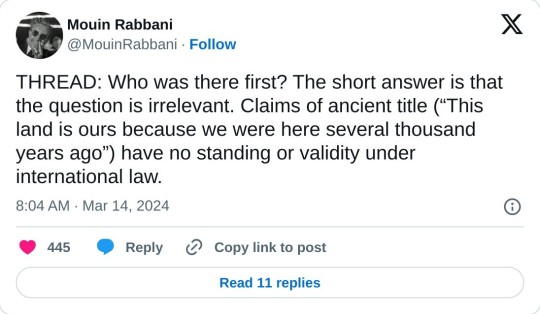
twitter thread by Mouin Rabbani
March 14, 2024
Who was there first? The short answer is that the question is irrelevant. Claims of ancient title (“This land is ours because we were here several thousand years ago”) have no standing or validity under international law.
For good reason, because such claims also defy elementary common sense. Neither I nor anyone reading this post can convincingly substantiate the geographical location of their direct ancestors ten or five or even two thousand years ago.
If we could, the successful completion of the exercise would confer exactly zero property, territorial, or sovereign rights.
As a thought experiment, let’s go back only a few centuries rather than multiple millennia. Do South Africa’s Afrikaners have the right to claim The Netherlands as their homeland, or even qualify for Dutch citizenship, on the basis of their lineage?
Do the descendants of African-Americans who were forcibly removed from West Africa have the right to board a flight in Atlanta, Port-au-Prince, or São Paolo and reclaim their ancestral villages from the current inhabitants, who in all probability arrived only after – perhaps long after – the previous inhabitants were abducted and sold into slavery half a world away?
Do Australians who can trace their roots to convicts who were involuntarily transported Down Under by the British government have a right to return to Britain or Ireland and repossess homes from the present inhabitants even if, with the help of court records, they can identify the exact address inhabited by their forebears? Of course not.
In sharp contrast to, for example, Native Americans or the Maori of New Zealand, none of the above can demonstrate a living connection with the lands to which they would lay claim.
To put it crudely, neither nostalgic attachment nor ancestry, in and of themselves, confer rights of any sort, particularly where such rights have not been asserted over the course of hundreds or thousands of years.
If they did, American English would be the predominant language in large parts of Europe, and Spain would once again be speaking Arabic.
Nevertheless, the claim of ancient title has been and remains central to Zionist assertions of not only Jewish rights in Palestine, but of an exclusive Jewish right to Palestine.
For the sake of argument, let’s examine it. If we put aside religious mythology, the origin of the ancient Israelites is indeed local.
In ancient times it was not unusual for those in conflict with authority or marginalized by it to take to the more secure environment of surrounding hills or mountains, conquer existing settlements or establish new ones, and in the ultimate sign of independence adopt distinct religious practices and generate their own rulers. That the Israelites originated as indigenous Canaanite tribes rather than as fully-fledged monotheistic immigrants or conquerors is more or less the scholarly consensus, buttressed by archeological and other evidence. And buttressed by the absence of evidence for the origin stories more familiar to us.
It is also the scholarly consensus that the Israelites established two kingdoms, Judah and Israel, the former landlocked and covering Jerusalem and regions to the south, the latter (also known as the Northern Kingdom or Samaria) encompassing points north, the Galilee, and parts of contemporary Jordan. Whether these entities were preceded by a United Kingdom that subsequently fractured remains the subject of fierce debate.
What is certain is that the ancient Israelites were never a significant regional power, let alone the superpower of the modern imagination.
There is a reason the great empires of the Middle East emerged in Egypt, Mesopotamia, Persia, and Anatolia – or from outside the region altogether – but never in Palestine.
It simply lacked the population and resource base for power projection. Jerusalem may be the holiest of cities on earth, but for almost the entirety of its existence, including the period in question, it existed as a village, provincial town or small city rather than metropolis.
Judah and Israel, like the neighboring Canaanite and Philistine entities during this period, were for most of their existence vassal states, their fealty and tribute fought over by rival empires – Egyptians, Assyrians, Babylonians, etc. – rather than extracted from others.
Indeed, Israel was destroyed during the eighth century BCE by the Assyrians, who for good measured subordinated Judah to their authority, until it was in the sixth century BCE eliminated by the Babylonians, who had earlier overtaken the Assyrians in a regional power struggle.
The Babylonian Exile was not a wholesale deportation, but rather affected primarily Judah’s elites and their kin. Nor was there a collective return to the homeland when the opportunity arose several decades later after Cyrus the Great defeated Babylon and re-established a smaller Judah as a province of the Persian Achaemenid empire. Indeed, Mesopotamia would remain a key center of Jewish religion and culture for centuries afterwards.
Zionist claims of ancient title conveniently erase the reality that the ancient Israelites were hardly the only inhabitants of ancient Palestine, but rather shared it with Canaanites, Philistines, and others.
The second part of the claim, that the Jewish population was forcibly expelled by the Romans and has for 2,000 years been consumed with the desire to return, is equally problematic.
By the time the Romans conquered Jerusalem during the first century BCE, established Jewish communities were already to be found throughout the Mediterranean world and Middle East – to the extent that a number of scholars have concluded that a majority of Jews already lived in the diaspora by the time the first Roman soldier set foot in Jerusalem.
These communities held a deep attachment to Jerusalem, its Temple, and the lands recounted in the Bible. They identified as diasporic communities, and in many cases may additionally have been able to trace their origins to this or that town or village in the extinguished kingdoms of Israel and Judah. But there is no indication those born and bred in the diaspora across multiple generations considered themselves to be living in temporary exile or considered the territory of the former Israelite kingdoms rather than their lands of birth and residence their natural homeland, any more than Irish-Americans today feel they properly belong in Ireland rather than the United States.
Unlike those taken in captivity to Babylon centuries earlier, there was no impediment to their relocation to or from their ancestral lands, although economic factors appear to have played an important role in the growth of the diaspora.
By contrast, those traveling in the opposite direction appear to have done so, more often than not, for religious reasons, or to be buried in Jerusalem’s sacred soil.
Nations and nationalism did not exist 2,000 years ago.
Nor Zionist propagandists in New York, Paris, and London incessantly proclaiming that for two millennia Jews everywhere have wanted nothing more than to return their homeland, and invariably driving home rather than taking the next flight to Tel Aviv.
Nor insufferably loud Americans declaring, without a hint of irony or self-awareness, the right of the Jewish people to Palestine “because they were there first”.
Back to the Romans, about a century after their arrival a series of Jewish rebellions over the course of several decades, coupled with internecine warfare between various Jewish factions, produced devastating results.
A large proportion of the Jewish population was killed in battle, massacred, sold into slavery, or exiled. Many towns and villages were ransacked, the Temple in Jerusalem destroyed, and Jews barred from entering the city for all but one day a year.
Although a significant Jewish presence remained, primarily in the Galilee, the killings, associated deaths from disease and destitution, and expulsions during the Roman-Jewish wars exacted a calamitous toll.
With the destruction of the Temple Jerusalem became an increasingly spiritual rather than physical center of Jewish life. Jews neither formed a demographic majority in Palestine, nor were the majority of Jews to be found there.
Many of those who remained would in subsequent centuries convert to Christianity or Islam, succumb to massacres during the Crusades, or join the diaspora. On the eve of Zionist colonization locally-born Jews constituted less than five per cent of the total population.
As for the burning desire to return to Zion, there is precious little evidence to substantiate it. There is, for example, no evidence that upon their expulsion from Spain during the late fifteenth century, the Sephardic Jewish community, many of whom were given refuge by the Ottoman Empire that ruled Palestine, made concerted efforts to head for Jerusalem. Rather, most opted for Istanbul and Greece.
Similarly, during the massive migration of Jews fleeing persecution and poverty in Eastern Europe during the nineteenth century, the destinations of choice were the United States and United Kingdom.
Even after the Zionist movement began a concerted campaign to encourage Jewish emigration to Palestine, less than five per cent took up the offer. And while the British are to this day condemned for limiting Jewish immigration to Palestine during the late 1930s, the more pertinent reality is that the vast majority of those fleeing the Nazi menace once again preferred to relocate to the US and UK, but were deprived of these havens because Washington and London firmly slammed their doors shut.
Tellingly, the Jewish Agency for Israel in 2023 reported that of the world’s 15.7 million Jews, 7.2 million – less than half – reside in Israel and the occupied Palestinian territories.
According to the Agency, “The Jewish population numbers refer to persons who define themselves as Jews by religion or otherwise and who do not practice another religion”.
It further notes that if instead of religion one were to apply Israel’s Law of Return, under which any individual with one or more Jewish grandparent is entitled to Israeli citizenship, only 7.2 of 25.5 million eligible individuals (28 per cent) have opted for Zion.
In other words, “Next Year in Jerusalem” was, and largely remains, an aspirational religious incantation rather than political program. For religious Jews, furthermore, it was to result from divine rather than human intervention.
For this reason, many equated Zionism with blasphemy, and until quite recently most Orthodox Jews were either non-Zionist or rejected the ideology altogether.
Returning to the irrelevant issue of ancestry, if there is one population group that can lay a viable claim of direct descent from the ancient Israelites it would be the Samaritans, who have inhabited the area around Mount Gerizim, near the West Bank city of Nablus, without interruption since ancient times.
Palestinian Jews would be next in line, although unlike the Samaritans they interacted more regularly with both other Jewish communities and their gentile neighbors.
Claims of Israelite descent made on behalf of Jewish diaspora communities are much more difficult to sustain. Conversions to and from Judaism, intermarriage with gentiles, absorption in multiple foreign societies, and related phenomena over the course of several thousand years make it a virtual certainty that the vast majority of Jews who arrived in Palestine during the late 19th and first half of the 20th century to reclaim their ancient homeland were in fact the first of their lineage to ever set foot in it.
By way of an admittedly imperfect analogy, most Levantines, Egyptians, Sudanese, and North Africans identify as Arabs, yet the percentage of those who can trace their roots to the tribes of the Arabian Peninsula that conquered their lands during the seventh and eighth centuries is at best rather small.
Ironically, a contemporary Palestinian, particularly in the West Bank and Galilee, is likely to have more Israelite ancestry than a contemporary diaspora Jew.
The Palestinians take their name from the Philistines, one of the so-called Sea Peoples who arrived on the southern coast of Canaan from the Aegean islands, probably Crete, during the late second millennium BCE.
They formed a number of city states, including Gaza, Ashdod, and Ashkelon. Like Judah and Israel they existed primarily as vassals of regional powers, and like them were eventually destroyed by more powerful states as well.
With no record of their extermination or expulsion, the Philistines are presumed to have been absorbed by the Canaanites and thereafter disappear from the historical record.
Sitting at the crossroads between Asia, Africa, and Europe, Palestine was over the centuries repeatedly conquered by empires near and far, absorbing a constant flow of human and cultural influences throughout.
Given its religious significance, pilgrims from around the globe also contributed to making the Palestinian people what they are today.
A common myth is that the Palestinian origin story dates from the Arab-Muslim conquests of the seventh century. In point of fact, the Arabs neither exterminated nor expelled the existing population, and the new rulers never formed a majority of the population.
Rather, and over the course of several centuries, the local population was gradually Arabized, and to a large extent Islamized as well.
So the question as to who was there first can be answered in several ways: “both” and “irrelevant” are equally correct.
Indisputably, the Zionist movement had no right to establish a sovereign state in Palestine on the basis of claims of ancient title, which was and remains its primary justification for doing so.
That it established an exclusivist state that not only rejected any rights for the existing Palestinian population but was from the very outset determined to displace and replace this population was and remains a historical travesty.
That it as a matter of legislation confers automatic citizenship on millions who have no existing connection with the land but denies it to those who were born there and expelled from it, solely on the basis of their identity, would appear to be the very definition of apartheid.
The above notwithstanding, and while the Zionist claim of exclusive Israeli sovereignty in Palestine remains illegitimate, there are today several million Israelis who cannot be simply wished away.
A path to co-existence will need to be found, even as the genocidal nature of the Israeli state, and increasingly of Israeli society as well, makes the endeavor increasingly complicated.
The question, thrown into sharp relief by Israel’s genocidal onslaught on the Palestinian population of the Gaza Strip, is whether co-existence with Israeli society can be achieved without first dismantling the Israeli state and its ruling institutions.
258 notes
·
View notes
Text
Hey, wanna see something cool?
Project 562 is one Native photographer's quest to visit all of the 562+ Native American sovereign territories in what is now known as the United States, and photograph their people and cultures. One of the goals behind the project is to challenge stereotypes by showcasing the diversity of Native people and their experiences. The artist's name is Matika Wilbur and you should go look at her gallery.
#hylian rambles#this is so random but i had to listen to a podcast she cohosts for a class and it was awesome#it's called all my relations and you should check that out too
61 notes
·
View notes
Text













Voices of the Land
What better way to celebrate Indigenous Peoples’ Day than to highlight this landmark anthology that commemorates the Indigenous Peoples of North America? When the Light of the World was Subdued, Our Songs Came Through: A Norton Anthology of Native Nations Poetry, edited by Joy Harjo with Leanne Howe, Jennifer Elise Foerster, is a curated collection that features the poetry of 160 poets each showcasing a distinct voice from nearly 100 Indigenous Nations. This is the first edition from 2020, published by W. W. Norton & Company in New York.
The anthology is the first to provide a historically comprehensive collection of Native poetry. The literary traditions of Native Americans, the original poets of this country, date back centuries. The book opens with a blessing from Pulitzer Prize winner American Kiowa/Cherokee N. Scott Momaday (1934-2024) and contains introductions from contributing editors for five geographically organized sections. Each section begins with a poem from traditional oral literature and closes with emerging poets, creating a rich and diverse tapestry of Indigenous voices.
Joy Harjo, a member of the Muscogee (Creek) Nation, is a prominent figure in the literary world. She is known for her work as a poet, musician, playwright, and author. In addition to her contributions to literature, Harjo is also a celebrated performer and has released several albums combining poetry and music. In 2019, she made history by becoming the first Native American United States Poet Laureate and only the second to serve three terms. Throughout her career, Harjo has been a vocal advocate for Indigenous rights and has used her art to shed light on the experiences of Native peoples.
The following is an excerpt from Harjo’s introduction to this work:
“The anthology then is a way to pass on the poetry that has emerged from rich traditions of the very diverse cultures of indigenous peoples from these indigenous lands, to share it. Most readers will have no idea that there is or was a single Native poet, let alone the number included in this anthology. Our existence as sentient human beings in the establishment of this country was denied. Our presence is still an afterthought, and fraught with tension, because our continued presence means that the mythic storyline of the founding of this country is inaccurate. The United States is a very young country and has been in existence for only a few hundred years. Indigenous peoples have been here for thousands upon thousands of years and we are still here.”
View other Indigenous Peoples' Day posts.
View other posts from our Native American Literature Collection.
-Melissa (Stockbridge-Munsee), Special Collections Graduate Intern
We acknowledge that in Milwaukee we live and work on traditional Potawatomi, Ho-Chunk, and Menominee homelands along the southwest shores of Michigami, part of North America’s largest system of freshwater lakes, where the Milwaukee, Menominee, and Kinnickinnic rivers meet and the people of Wisconsin’s sovereign Anishinaabe, Ho-Chunk, Menominee, Oneida, and Mohican nations remain present.
#indigenous peoples' day#When the Light of the World was Subdued#Our Songs Came Through#joy harjo#Leanne Howe#Jennifer Elise Foerster#W. W. Norton & Company#N. Scott Momaday#first nations#native americans#Native poetry#indigenous literature#indigenous poetry#poetry anthology#poet laureate
78 notes
·
View notes